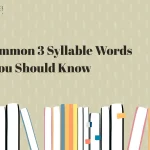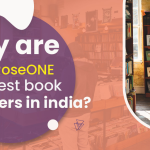Have you ever seen a movie or read a book where you knew something that the characters didn’t? That is dramatic irony in action! It’s a great literary device that keeps readers engaged, waiting to see how the characters react when they ultimately discover the truth. Dramatic irony not only adds dimension to storytelling, but it also fosters emotional connections with the audience.
What is Dramatic Irony?
Dramatic irony is a literary device in which the audience understands something crucial but the characters in the story do not. This adds tension or humor because readers predict how the characters will respond when they find the truth.
For example, in Shakespeare’s Romeo and Juliet, the audience knows Juliet is still alive while Romeo believes she is dead. Dramatic irony is frequently employed to enhance emotional impact and keep readers interested in the story’s progression.
How Dramatic Irony Differs from Other Types of Irony
Dramatic irony differs from other varieties of irony, such as verbal and situational irony, in that it assumes the audience knows something the characters do not.
Verbal irony occurs when a speaker says one thing but intends another, usually to communicate sarcasm. Situational irony occurs when there is a significant difference between what is expected and what actually happens.
Dramatic irony, on the other hand, heightens tension or emotional engagement by providing the audience with exclusive information. For example, in Romeo and Juliet, the audience knows Juliet is alive while Romeo believes she is dead. This distinguishing feature makes dramatic irony an effective storytelling tool.
The Mechanics of Dramatic Irony
How Dramatic Irony Works
Dramatic irony works by providing the audience or reader with knowledge that the characters in a story do not have, resulting in a tension between what is known and what is happening.
This literary device is based on the audience being “in the know” about a situation, while the characters are oblivious of important aspects. For example, in Romeo and Juliet, the audience is aware that Juliet is alive, but Romeo believes she has died, leading to his tragic conclusion.
This knowledge gap heightens emotional engagement since readers anticipate the protagonists’ revelation of the truth, which frequently results in moments of astonishment, laughter, or tragedy.
Building Tension and Suspense
Dramatic irony is an effective technique for increasing tension and suspense in a story. When the viewer knows something that the protagonists don’t, it builds anticipation for when and how the truth will be revealed.
For example, in Romeo and Juliet, the audience knows Juliet is alive, but Romeo believes she has died. This knowledge puts readers on edge, increasing emotional engagement and compelling them to keep turning the pages to see how the dramatic resolution plays out.
Engaging the Audience Emotionally
Dramatic irony is an effective method for emotionally engaging the audience by creating a disconnect between what the characters know and what the readers or viewers understand.
This generates tension, expectation, and empathy. For example, in Shakespeare’s Romeo and Juliet, the audience knows Juliet is alive, but Romeo believes she has died.
This awareness renders Romeo’s actions sad, drawing readers into the plot. Emotional engagement keeps the audience interested in the narrative’s outcome.
You may also like: Query Letter vs. Cover Letter: What’s the Difference?
Examples of Dramatic Irony in Literature
Dramatic Irony in Shakespeare’s Plays
- Romeo and Juliet: The audience knows Juliet isn’t truly dead, but Romeo doesn’t, leading to a heartbreaking conclusion.
- Othello: Iago’s schemes are crystal clear to the audience, but Othello remains tragically unaware.
Dramatic Irony in Modern Literature
- The Great Gatsby: Readers understand Gatsby’s idealism, but the characters misinterpret his intentions.
- Of Mice and Men: The audience anticipates the tragic end of Lennie before George does, amplifying the emotional impact.
Benefits of Using Dramatic Irony in Storytelling
Enhancing Reader Engagement
Dramatic irony increases reader engagement by establishing a link between the audience and the story. When readers know important knowledge that the protagonists do not, it heightens their anticipation as they wait to see how the events unfold.
This knowledge inspires emotions such as suspense, sympathy, and even laughter, keeping readers interested in the story. Dramatic irony keeps the audience interested and ready to find out what happens to the characters by involving them in the story’s evolution.
Deepening Character Relationships
Dramatic irony can enrich character connections by complicating their interactions. When the audience understands something that the characters don’t, tension and emotional investment arise.
For example, a character may unintentionally trust someone with a secret goal, eliciting empathy or irritation in the reader. This strategy emphasizes vulnerabilities, misconceptions, or trust concerns, helping readers to connect more closely with the characters and their changing dynamics throughout the novel.
Adding Complexity to the Plot
Dramatic irony improves the plot by adding layers of complexity. When the audience knows something the characters don’t, it builds suspense and anticipation.
This understanding enables the writer to delve further into emotional problems as the characters’ actions or decisions become more relevant.
The disparity between what the audience anticipates and what actually happens can make the storyline more unpredictable and interesting, propelling the story to powerful, often surprising, resolutions.
You may also like: Top 10 Classic Literature Books Everyone Should Read
Have you ever seen a movie or read a book where you knew something that the characters didn’t? That is dramatic irony in action! It’s a great literary device that keeps readers engaged, waiting to see how the characters react when they ultimately discover the truth. Dramatic irony not only adds dimension to storytelling, but it also fosters emotional connections with the audience.
Creating Dramatic Irony in Your Writing
Understanding Your Audience’s Perspective
To use dramatic irony effectively, you must first comprehend your audience’s perspective. Dramatic irony happens when the audience understands something that the actors do not, resulting in suspense and tension.
Consider what your readers expect or already know, and carefully deliver information at the appropriate times. This intensifies the emotional effect since the viewer expects how the characters will react, adding levels of meaning and excitement to the plot. Understanding this promotes better relationships and more engaging narratives.
Developing Situations for Irony
To establish irony in your writing, imagine a scenario in which the audience knows something important that the protagonists do not. The difference between the audience’s awareness and the characters’ ignorance is the cornerstone of dramatic irony.
For example, a character may make decisions based on incorrect beliefs, while the reader is aware of the truth, resulting in tension or laughter. By properly organizing these moments, you can create tension and elicit strong emotional emotions from your audience.
Timing and Revelation
In dramatic irony, timing is everything. The audience frequently knows something the characters don’t, which adds suspense and tension. The trick is disclosing information at the proper time.
Too early, and the impact is diminished; too late, and the audience may lose interest. Writers can regulate this by gradually building up to the revelation, enabling the viewer to sense the character’s ignorance and await the moment when the truth is revealed. This generates a stronger emotional response.
Tips for Writing Effective Dramatic Irony
- Start with a Strong Premise: Ensure the foundation of your story supports dramatic irony.
- Balance Subtlety and Clarity: Avoid making the irony too obvious or too obscure.
- Avoid Overusing Dramatic Irony: Too much can dilute its effect.
Common Mistakes to Avoid
Overcomplicating the Plot
Overcomplicating the plot can confuse readers and reduce the story’s effect. When too many twists, characters, or subplots are introduced, the main conflict becomes difficult to follow.
Dramatic irony, in which the audience knows something the characters don’t, is most effective when the plot is clear and concentrated.
Overcomplicating the tale can undermine this method, making it difficult for readers to fully understand the suspense and surprises that dramatic irony provides.
Failing to Connect with the Audience
One typical error in using dramatic irony is failing to develop a strong connection with the audience. If readers or viewers don’t understand the disconnect between what the characters know and what the audience understands, the irony loses its punch.
This can happen if the setup is confusing or the characters aren’t relatable enough. To avoid this, make sure the viewer is emotionally invested in the characters and the scenario, which will make the irony more effective and engaging.
You may also like: How to Write an Author Bio | BlueRoseOne
The Impact of Dramatic Irony on Readers
Emotional Responses
Readers react strongly to dramatic irony because they know something that the characters do not. This knowledge can cause readers to experience tension, suspense, or even frustration as they predict how the characters will respond once they discover the truth.
It can also elicit empathy, as readers frequently feel both concerned for the characters and pity for their ignorance. These emotional responses enhance the story’s engagement and strengthen the reader’s commitment to the plot.
Memorable Storytelling
Dramatic irony is important in memorable storytelling because it helps readers connect with the story more deeply. When readers know something that the characters do not, it heightens tension, anticipation, and emotional connection.
This knowledge allows readers to predict how the story will unfold, making the final twist or reveal more poignant. As a result, dramatic irony not only raises the stakes, but it also makes the story more memorable by allowing readers to see the characters’ journey from a different angle.
Conclusion
Dramatic irony is an effective method for enriching storytelling by closing the gap between the audience’s knowledge and the characters’ comprehension. By mastering this method, you may produce emotionally engaging storylines that keep readers coming back for more.
















